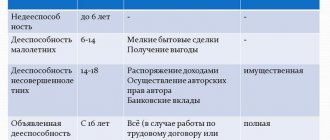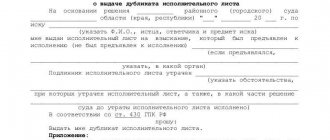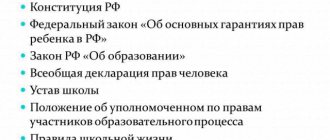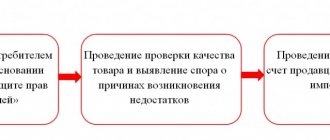Federal Law of July 27, 2004 No. 79-FZ
RUSSIAN FEDERATION
THE FEDERAL LAW
On the state civil service of the Russian Federation
Adopted by the State Duma on July 7, 2004
Approved by the Federation Council on July 15, 2004
(As amended by federal laws dated 02/02/2006 No. 19-FZ, dated 03/02/2007 No. 24-FZ, dated 04/12/2007 No. 48-FZ, dated 12/01/2007 No. 309-FZ, dated 03/29/2008 No. 30-FZ, dated July 23, 2008 No. 160-FZ, dated December 25, 2008 No. 280-FZ, dated July 17, 2009 No. 160-FZ, dated July 18, 2009 No. 187-FZ, dated November 25, 2009 No. 269-FZ, dated December 17, 2009 No. 322-FZ, dated January 29, 2010 No. 1-FZ, dated February 14, 2010 No. 9-FZ, dated November 29, 2010 No. 317-FZ, dated December 28, 2010 No. 419-FZ, dated June 27, 2011 No. 155-FZ, dated 07/11/2011 No. 204-FZ, dated 11/21/2011 No. 329-FZ, dated 12/06/2011 No. 395-FZ, dated 12/03/2012 No. 231-FZ, dated 12/30/2012 No. 295-FZ, dated 12/30/2012 No. 327 -FZ, dated 04/05/2013 No. 57-FZ, dated 05/07/2013 No. 99-FZ, dated 05/07/2013 No. 102-FZ, dated 06/07/2013 No. 116-FZ, dated 07/02/2013 No. 149-FZ, dated 02.07 .2013 No. 170-FZ, dated July 2, 2013 No. 185-FZ, dated November 25, 2013 No. 317-FZ, dated December 28, 2013 No. 396-FZ, dated April 2, 2014 No. 53-FZ, dated December 22, 2014 No. 431- Federal Law, dated December 31, 2014 No. 509-FZ, dated December 31, 2014 No. 510-FZ, dated June 8, 2015 No. 147-FZ, dated July 13, 2015 No. 262-FZ, dated October 5, 2015 No. 285-FZ, dated December 29. 2015 No. 395-FZ, dated December 30, 2015 No. 418-FZ, dated May 23, 2016 No. 143-FZ, dated June 2, 2016 No. 176-FZ, dated June 30, 2016 No. 224-FZ, dated July 3, 2016 No. 276-FZ , dated December 28, 2016 No. 505-FZ, dated April 3, 2017 No. 64-FZ, dated July 1, 2017 No. 132-FZ, dated July 1, 2017 No. 133-FZ, dated July 26, 2017 No. 192-FZ, dated July 29, 2017 No. 217-FZ, dated July 29, 2017 No. 275-FZ, dated December 28, 2017 No. 423-FZ, dated August 3, 2018 No. 307-FZ, dated August 3, 2018 No. 337-FZ, dated October 30, 2018 No. 382-FZ, dated 12/11/2018 No. 461-FZ, dated 05/01/2019 No. 99-FZ, dated 12/02/2019 No. 418-FZ, dated 12/16/2019 No. 432-FZ, dated 06/08/2020 No. 181-FZ, dated 07/20/2020 No. 226-FZ, dated July 20, 2020 No. 227-FZ, dated July 31, 2020 No. 268-FZ, dated July 31, 2020 No. 288-FZ, dated October 27, 2020 No. 346-FZ, dated December 8, 2020 No. 429-FZ, dated 03/24/2021 No. 52-FZ, dated 04/30/2021 No. 116-FZ, dated 06/11/2021 No. 170-FZ, dated 07/02/2021 No. 351-FZ)
This Federal Law, in accordance with the Constitution of the Russian Federation and the Federal Law of May 27, 2003 No. 58-FZ “On the Civil Service System of the Russian Federation” (hereinafter referred to as the Federal Law “On the Civil Service System of the Russian Federation”) establishes legal, organizational and financial economic foundations of the state civil service of the Russian Federation.
Chapter 1. General provisions
Article 1. Basic terms
For the purposes of this Federal Law, the terms used mean:
1) public positions of the Russian Federation and public positions of the constituent entities of the Russian Federation (hereinafter also referred to as public positions) - positions established by the Constitution of the Russian Federation, federal laws for the direct execution of the powers of federal government bodies, and positions established by the constitutions (charters), laws of the constituent entities of the Russian Federation for the direct execution of powers of state bodies of the constituent entities of the Russian Federation;
2) representative of the employer - the head of a state body, a person holding a government position, or a representative of the said head or person exercising the powers of the employer on behalf of the Russian Federation or a subject of the Russian Federation.
Article 2. Subject of regulation of this Federal Law
The subject of regulation of this Federal Law is relations related to entry into the state civil service of the Russian Federation, its passage and termination, as well as the determination of the legal status (status) of a federal civil servant and a state civil servant of a constituent entity of the Russian Federation (hereinafter also referred to as a civil servant) .
Article 3. State civil service of the Russian Federation
1. State civil service of the Russian Federation (hereinafter also referred to as civil service) is a type of public service representing the professional service activities of citizens of the Russian Federation (hereinafter referred to as citizens) in positions of the state civil service of the Russian Federation (hereinafter also referred to as civil service positions) to ensure execution powers of federal state bodies, public authorities of the federal territory, state bodies of the constituent entities of the Russian Federation, persons holding government positions in the Russian Federation, and persons holding government positions in the constituent entities of the Russian Federation. (As amended by federal laws dated 06/07/2013 No. 116-FZ, dated 07/02/2021 No. 351-FZ)
2. The state civil service of the Russian Federation is divided into the federal state civil service (hereinafter also referred to as the federal civil service) and the state civil service of the constituent entities of the Russian Federation (hereinafter also referred to as the civil service of the constituent entities of the Russian Federation).
Article 4. Principles of civil service
The principles of the civil service are:
1) priority of human and civil rights and freedoms;
2) the unity of the legal and organizational foundations of the federal civil service and the civil service of the constituent entities of the Russian Federation;
3) equal access of citizens who speak the state language of the Russian Federation to the civil service and equal conditions for its passage, regardless of gender, race, nationality, origin, property and official status, place of residence, attitude to religion, beliefs, membership of public associations, and also from other circumstances not related to the professional and business qualities of a civil servant;
4) professionalism and competence of civil servants;
5) stability of the civil service;
6) availability of information about the civil service;
7) interaction with public associations and citizens;
 protection of civil servants from unlawful interference in their professional activities.
protection of civil servants from unlawful interference in their professional activities.
Article 5. Legislation of the Russian Federation on the state civil service of the Russian Federation
1. Regulation of relations related to the civil service is carried out:
1) the Constitution of the Russian Federation;
2) Federal Law “On the Civil Service System of the Russian Federation”;
3) this Federal Law;
4) other federal laws, including federal laws regulating the specifics of civil service;
5) decrees of the President of the Russian Federation;
6) resolutions of the Government of the Russian Federation;
7) regulatory legal acts of federal executive authorities;
 constitutions (charters), laws and other regulatory legal acts of the constituent entities of the Russian Federation;
constitutions (charters), laws and other regulatory legal acts of the constituent entities of the Russian Federation;
9) regulatory legal acts of government bodies.
2. If an international treaty of the Russian Federation establishes rules other than those provided for by this Federal Law, then the rules of the international treaty apply.
3. Decisions of interstate bodies adopted on the basis of the provisions of international treaties of the Russian Federation in their interpretation, contrary to the Constitution of the Russian Federation, are not subject to execution in the Russian Federation. Such a contradiction may be established in the manner prescribed by federal constitutional law. (Part introduced - Federal Law No. 429-FZ dated 08.12.2020)
Article 6. Relationship between the civil service and other types of public service of the Russian Federation
The relationship between the civil service and other types of civil service of the Russian Federation is ensured on the basis of the unity of the civil service system of the Russian Federation and the principles of its construction and functioning, as well as through:
1) the correlation of the basic conditions and amounts of remuneration, basic state social guarantees;
2) establishing restrictions and obligations when performing various types of civil service in the Russian Federation;
3) taking into account other types of civil service experience in the Russian Federation when calculating civil service experience;
4) the correlation of the basic conditions of state pension provision for citizens who served in the civil service of the Russian Federation.
Article 7. Relationship between civil service and municipal service
The relationship between the civil service and the municipal service is ensured through:
1) unity of basic qualification requirements for filling civil service positions and municipal service positions; (As amended by Federal Law No. 224-FZ dated June 30, 2016)
2) unity of restrictions and obligations when performing civil service and municipal service;
3) unity of requirements for training for civil service and municipal service and professional development of civil servants and municipal employees; (As amended by Federal Laws dated July 2, 2013 No. 185-FZ; dated July 29, 2017 No. 275-FZ)
4) taking into account the length of service in the municipal service when calculating the length of service in the civil service and the length of service in the civil service when calculating the experience in the municipal service;
5) the correlation between the basic conditions of remuneration and social guarantees for civil servants and municipal employees;
6) the correlation of the basic conditions of state pension provision for citizens who served in civil service, and citizens who served in municipal service, and their families in the event of the loss of a breadwinner.
Chapter 2. Civil service positions
Article 8. Civil service positions
Positions of the federal state civil service are established by federal law or a decree of the President of the Russian Federation, positions of the state civil service of the constituent entities of the Russian Federation - by laws or other regulatory legal acts of the constituent entities of the Russian Federation, taking into account the provisions of this Federal Law in order to ensure the execution of the powers of a state body or a person holding a public position .
Article 9. Classification of civil service positions
1. Civil service positions are divided into categories and groups.
2. Civil service positions are divided into the following categories:
1) managers - positions of heads and deputy heads of state bodies and their structural divisions (hereinafter also referred to as divisions), positions of heads and deputy heads of territorial bodies of federal executive authorities and their structural divisions, positions of heads and deputy heads of representative offices of state bodies and their structural divisions , replaced for a certain term of office or without limiting the term of office;
2) assistants (advisers) - positions established to assist persons holding government positions, heads of state bodies, heads of territorial bodies of federal executive bodies and heads of representative offices of state bodies in the exercise of their powers and replaced for a certain period, limited by the term of office of these persons or managers;
3) specialists - positions established to professionally ensure the fulfillment by state bodies of established tasks and functions and replaced without limiting the term of office;
4) supporting specialists - positions established for organizational, informational, documentation, financial, economic, economic and other support for the activities of government bodies and replaced without limiting the term of office.
3. Civil service positions are divided into the following groups:
1) senior positions of the civil service;
2) main positions of the civil service;
3) leading positions in the civil service;
4) senior civil service positions;
5) junior positions in the civil service.
4. Positions in the categories “managers” and “assistants (advisers)” are divided into the highest, main and leading groups of civil service positions.
5. Positions in the “specialists” category are divided into the highest, main, leading and senior groups of civil service positions.
6. Positions in the category “supporting specialists” are divided into main, leading, senior and junior groups of civil service positions.
Article 10. Registers of positions in the state civil service of the Russian Federation
1. Positions of the federal state civil service, classified by state bodies, categories, groups, as well as other characteristics, make up lists of positions of the federal state civil service, which are the corresponding sections of the Register of positions of the federal state civil service. The register of positions in the federal state civil service is approved by decree of the President of the Russian Federation.
2. Positions of the state civil service of a constituent entity of the Russian Federation in state bodies of a constituent entity of the Russian Federation, established taking into account the structure of these bodies and classified into categories, groups of positions in accordance with Article 9 of this Federal Law, make up lists of positions of the state civil service of a constituent entity of the Russian Federation that are relevant sections of the register of positions in the state civil service of a constituent entity of the Russian Federation. The register of positions in the state civil service of a constituent entity of the Russian Federation is compiled taking into account the principles of constructing the Register of positions in the federal state civil service and is approved by law or other regulatory legal act of the constituent entity of the Russian Federation. (As amended by Federal Law dated July 2, 2013 No. 149-FZ)
3. (Part no longer in force - Federal Law dated December 28, 2010 No. 419-FZ)
Article 11. Class ranks of the civil service, class ranks of justice, diplomatic ranks
1. A federal civil servant is assigned the class rank of the state civil service of the Russian Federation (hereinafter referred to as the class rank of the civil service of the Russian Federation), or the class rank of justice, or a diplomatic rank. A civil servant of a constituent entity of the Russian Federation is assigned a class rank in the civil service of a constituent entity of the Russian Federation.
2. Class ranks of the civil service of the Russian Federation are assigned to federal civil servants filling civil service positions for which the assignment of class ranks of justice and diplomatic ranks is not provided.
3. Class ranks of justice are assigned to federal civil servants filling positions in the civil service, the qualification requirement for filling which is the presence of a legal education, in federal state bodies and their territorial bodies (bodies) determined by the President of the Russian Federation, as well as in the apparatus of federal courts.
4. Diplomatic ranks are assigned to federal civil servants in accordance with Federal Law No. 205-FZ of July 27, 2010 “On the specifics of the federal state civil service in the system of the Ministry of Foreign Affairs of the Russian Federation.”
5. Class ranks - class ranks of the civil service of the Russian Federation, class ranks of the civil service of the constituent entities of the Russian Federation, class ranks of justice - are assigned to civil servants personally, in accordance with the sequence, in accordance with the civil service position being filled, as well as taking into account the professional level, duration of civil service service in the previous class rank and in the civil service position being replaced.
6. Federal civil servants holding positions in the civil service of the highest group of positions (with the exception of federal civil servants who are assigned diplomatic ranks) are assigned the class rank of the civil service of the Russian Federation - active state adviser of the Russian Federation of 1, 2 or 3 classes or the class rank of justice - Actual State Counselor of Justice of the Russian Federation 1st, 2nd or 3rd class. Civil servants holding positions in the civil service of a constituent entity of the Russian Federation of the highest group of positions are assigned the class rank of civil service of a constituent entity of the Russian Federation - actual state adviser of a constituent entity of the Russian Federation, 1st, 2nd or 3rd class.
7. Federal civil servants holding civil service positions in the main group of positions (with the exception of federal civil servants who are assigned diplomatic ranks) are assigned the class rank of the civil service of the Russian Federation - State Advisor of the Russian Federation 1st, 2nd or 3rd class or the class rank of justice - state Counselor of Justice of the Russian Federation 1st, 2nd or 3rd class. Civil servants filling positions in the civil service of a constituent entity of the Russian Federation of the main group of positions are assigned the class rank of civil service of a constituent entity of the Russian Federation - state adviser of a constituent entity of the Russian Federation, 1st, 2nd or 3rd class.
8. Federal civil servants filling civil service positions of the leading group of positions (with the exception of federal civil servants who are assigned diplomatic ranks) are assigned the class rank of the civil service of the Russian Federation - adviser to the state civil service of the Russian Federation of 1, 2 or 3 classes or the class rank of justice - Counselor of Justice 1st, 2nd or 3rd class. Civil servants filling positions in the civil service of a constituent entity of the Russian Federation in the leading group of positions are assigned the class rank of civil service of a constituent entity of the Russian Federation - adviser to the state civil service of a constituent entity of the Russian Federation, 1st, 2nd or 3rd class.
9. Federal civil servants holding positions in the civil service of the senior group of positions (with the exception of federal civil servants who are assigned diplomatic ranks) are assigned the class rank of the civil service of the Russian Federation - assistant of the state civil service of the Russian Federation of 1, 2 or 3 classes or the class rank of justice - lawyer 1, 2 or 3 classes. Civil servants filling positions in the civil service of a constituent entity of the Russian Federation of the senior group of positions are assigned the class rank of civil service of a constituent entity of the Russian Federation - referent of the state civil service of a constituent entity of the Russian Federation, 1st, 2nd or 3rd class.
10. Federal civil servants filling civil service positions in the junior group of positions are assigned the class rank of the civil service of the Russian Federation - secretary of the state civil service of the Russian Federation, 1st, 2nd or 3rd class. Civil servants filling positions in the civil service of a constituent entity of the Russian Federation of the junior group of positions are assigned the class rank of civil service of a constituent entity of the Russian Federation - secretary of the state civil service of a constituent entity of the Russian Federation, 1st, 2nd or 3rd class.
11. Class ranks of the civil service of the Russian Federation - actual state adviser of the Russian Federation 1st class, actual state adviser of the Russian Federation 2nd class and actual state adviser of the Russian Federation 3rd class and class ranks of justice - actual state adviser of justice of the Russian Federation 1st class, actual state adviser of justice Russian Federation 2nd class and Actual State Counselor of Justice of the Russian Federation 3rd class are awarded Prezi
Federal Law No. 79-FZ of July 27, 2004
On the state civil service of the Russian Federation
Page 3 / 17
Output document: entire pages
- Chapter I. General provisions
- Chapter II. Civil service positions
- Chapter III. Legal status (status) of a civil servant
- Chapter IV. Entering the civil service
- Chapter V. Service contract
- Chapter VI. Grounds and consequences of termination of a service contract
- Chapter VII. Personal data of a civil servant. Personnel service of a government agency
- Chapter VIII. Working time and rest time
- Chapter IX. Passage of civil service
- Chapter X. Remuneration of civil servants
- Chapter XI. State guarantees in the civil service
- Chapter XII. Promotions and awards. Service discipline in the civil service
- Chapter XIII. Formation of civil service personnel
- Chapter XIV. Financing the civil service. Civil service development programs
- Chapter XV. State supervision and control over compliance with the legislation of the Russian Federation on the state civil service of the Russian Federation
- Chapter XVI. Consideration of individual service disputes
- Chapter XVII. Entry into force of this Federal Law
Chapter 3. Legal status (status) of a civil servant
Article 13. Civil servant
A civil servant is a citizen of the Russian Federation who has undertaken the obligation to perform civil service. A civil servant carries out professional official activities in civil service positions in accordance with the act of appointment to the position and with the service contract and receives salary from the federal budget or the budget of a constituent entity of the Russian Federation.
Article 14. Basic rights of a civil servant
1. A civil servant has the right to:
- ensuring proper organizational and technical conditions necessary for the performance of official duties;
- familiarization with the official regulations and other documents defining his rights and responsibilities for the position being filled in the civil service, criteria for assessing the effectiveness of the performance of official duties, performance indicators of professional service activities and conditions for job growth;
- rest provided by establishing the normal length of service time, providing days off and non-working holidays, as well as annual paid basic and additional leaves;
- wages and other payments in accordance with this Federal Law, other regulatory legal acts of the Russian Federation and with the service contract;
- receiving, in the prescribed manner, information and materials necessary for the performance of official duties, as well as making proposals for improving the activities of the state body;
- access in accordance with the established procedure to information constituting a state secret, if the performance of official duties involves the use of such information;
- access in accordance with the established procedure in connection with the performance of official duties to state bodies, local governments, public associations and other organizations;
- familiarization with reviews of his professional performance and other documents before entering them into his personal file, materials of his personal file, as well as the inclusion of his written explanations and other documents and materials in his personal file;
- protection of information about a civil servant;
- job promotion on a competitive basis;
- professional retraining, advanced training and internship in the manner established by this Federal Law and other federal laws;
- membership in a trade union;
- consideration of individual official disputes in accordance with this Federal Law and other federal laws;
- carrying out an internal audit at his request;
- protection of their rights and legitimate interests in the civil service, including appealing their violation to the court;
- medical insurance in accordance with this Federal Law and the Federal Law on Medical Insurance of Civil Servants of the Russian Federation;
- state protection of his life and health, the life and health of his family members, as well as property belonging to him;
- state pension provision in accordance with federal law.
2. A civil servant has the right, with prior notification of the employer’s representative, to perform other paid work, unless this entails a conflict of interest.
Article 15. Basic duties of a civil servant
1. A civil servant is obliged:
- comply with the Constitution of the Russian Federation, federal constitutional laws, federal laws, other regulatory legal acts of the Russian Federation, constitutions (charters), laws and other regulatory legal acts of the constituent entities of the Russian Federation and ensure their implementation;
- perform official duties in accordance with official regulations;
- carry out instructions from relevant managers given within the limits of their powers established by the legislation of the Russian Federation;
- observe the rights and legitimate interests of citizens and organizations when performing official duties;
- comply with the official regulations of the government body;
- maintain the level of qualifications necessary for the proper performance of official duties;
- not to disclose information constituting state or other secrets protected by federal law, as well as information that has become known to him in connection with the performance of official duties, including information relating to the private life and health of citizens or affecting their honor and dignity;
- protect state property, including those provided to him for the performance of official duties;
- provide, in the prescribed manner, information provided by federal law about yourself and your family members; (Clause 9 as amended by Federal Law dated November 21, 2011 N 329-FZ)
- report renunciation of citizenship of the Russian Federation or acquisition of citizenship of another state on the day of renunciation of citizenship of the Russian Federation or on the day of acquisition of citizenship of another state;
- comply with restrictions, fulfill obligations and requirements for official conduct, not violate the prohibitions established by this Federal Law and other federal laws;
- inform the employer's representative about personal interests in the performance of official duties, which may lead to a conflict of interest, and take measures to prevent such a conflict.
1.1. A civil servant is obliged to indicate cost indicators in accordance with the requirements established by federal laws and decrees of the President of the Russian Federation. (Part one.1 introduced by Federal Law dated April 12, 2007 N 48-FZ)
2. A civil servant has no right to carry out an unlawful assignment given to him. When receiving an order from the relevant manager that, in the opinion of the civil servant, is unlawful, the civil servant must provide in writing a justification for the illegality of this order, indicating the provisions of the legislation of the Russian Federation that may be violated in the execution of this order, and receive confirmation of this order from the manager in writing. If the manager confirms this order in writing, the civil servant is obliged to refuse to execute it.
3. If a civil servant executes an unlawful order, the civil servant and the manager who gave this order bear disciplinary, civil, administrative or criminal liability in accordance with federal laws.
4. A civil servant filling a civil service position in the “managers” category of the highest group of civil service positions, in order to eliminate conflicts of interest in a state body, cannot represent the interests of civil servants in the elected trade union body of this state body during the period of filling the specified position.
5. Civil servants are subject to mandatory state fingerprint registration in cases and in the manner established by federal law.
Article 16. Restrictions related to civil service
1. A citizen cannot be accepted into the civil service, and a civil servant cannot be in the civil service in the case of:
- recognition of him as incompetent or partially capable by a court decision that has entered into legal force;
- convicting him to a punishment that precludes the possibility of performing official duties in a position of public service (civil service), by a court verdict that has entered into legal force, as well as in the case of a criminal record that has not been expunged or expunged in accordance with the procedure established by federal law;
- refusal to undergo the procedure for obtaining access to information constituting state and other secrets protected by federal law, if the performance of official duties in a civil service position for which a citizen is applying, or in a civil service position being filled by a civil servant involves the use of such information;
- the presence of a disease that prevents entry into the civil service or its completion and confirmed by the conclusion of a medical institution. The procedure for undergoing medical examination, the list of such diseases and the form of conclusion of the medical institution are established by the federal executive body authorized by the Government of the Russian Federation; (as amended by Federal Law No. 160-FZ of July 23, 2008)
- close relationship or relationship (parents, spouses, children, brothers, sisters, as well as brothers, sisters, parents, children of spouses and spouses of children) with a civil servant, if filling a civil service position is associated with the direct subordination or control of one of them to the other; (as amended by Federal Law dated November 21, 2011 N 329-FZ)
- renunciation of citizenship of the Russian Federation or acquisition of citizenship of another state;
- having citizenship of another state (other states), unless otherwise provided by an international treaty of the Russian Federation;
- submission of false documents or knowingly false information when entering the civil service;
- failure to provide information established by this Federal Law or provision of knowingly false information about income, property and property-related obligations when entering the civil service; (as amended by Federal Law dated November 21, 2011 N 329-FZ)
- loss by the employer's representative of trust in a civil servant in cases of non-compliance with restrictions and prohibitions, requirements to prevent or resolve conflicts of interest and failure to fulfill the duties established for the purpose of combating corruption by this Federal Law and the Federal Law of December 25, 2008 N 273-FZ “On Combating Corruption " (Clause 10 as amended by Federal Law dated November 21, 2011 N 329-FZ)
2. Other restrictions related to entry into the civil service and its completion, with the exception of the restrictions specified in Part 1 of this article, are established by federal laws.
3. Liability for failure to comply with the restrictions provided for in Part 1 of this article is established by this Federal Law and other federal laws.
Article 17. Prohibitions related to civil service
1. In connection with the performance of civil service, a civil servant is prohibited from:
- participate on a paid basis in the activities of the management body of a commercial organization, with the exception of cases established by federal law; 2) fill a civil service position in the event of: a) election or appointment to a public position, except for the case established by part two of Article 6 of the Federal Constitutional Law of December 17, 1997 No. 2-FKZ “On the Government of the Russian Federation”; (paragraph “a” as amended by Federal Law No. 1-FZ of January 29, 2010) b) election to an elective position in a local government body; c) election to a paid elective position in the body of a trade union, including in the elected body of a primary trade union organization created in a state body;
- carry out business activities;
- acquire, in cases established by federal law, securities from which income can be received;
- to be an attorney or representative for the affairs of third parties in the government body in which he holds a civil service position, unless otherwise provided by this Federal Law and other federal laws;
- receive remuneration from individuals and legal entities in connection with the performance of official duties (gifts, monetary remuneration, loans, services, payment for entertainment, recreation, transportation expenses and other remuneration). Gifts received by a civil servant in connection with protocol events, business trips and other official events are recognized, respectively, as federal property and the property of a constituent entity of the Russian Federation and are transferred by the civil servant according to an act to the state body in which he holds a civil service position, with the exception of established by the Civil Code of the Russian Federation. A civil servant who has handed over a gift received in connection with a protocol event, business trip or other official event may redeem it in the manner established by the regulatory legal acts of the Russian Federation; (as amended by Federal Law No. 280-FZ of December 25, 2008)
- travel in connection with the performance of official duties outside the territory of the Russian Federation at the expense of individuals and legal entities, with the exception of business trips carried out in accordance with the legislation of the Russian Federation, by agreement of state bodies of the Russian Federation, state bodies of constituent entities of the Russian Federation or municipal bodies with state or municipal authorities of foreign states, international or foreign organizations; (Clause 7 as amended by Federal Law dated November 21, 2011 N 329-FZ)
- use, for purposes not related to the performance of official duties, means of logistics and other support, other state property, as well as transfer them to other persons;
- disclose or use for purposes unrelated to the civil service, information classified as confidential information in accordance with federal law, or proprietary information that has become known to him in connection with the performance of official duties;
- allow public statements, judgments and assessments, including in the media, regarding the activities of state bodies, their leaders, including decisions of a higher state body or a state body in which a civil servant holds a civil service position, if this is not part of his official duties responsibilities;
- accept, without the written permission of the employer's representative, awards, honorary and special titles (with the exception of scientific ones) from foreign states, international organizations, as well as political parties, other public associations and religious associations, if his job responsibilities include interaction with these organizations and associations;
- use the advantages of official position for election campaigning, as well as for campaigning on referendum issues;
- use official powers in the interests of political parties, other public associations, religious associations and other organizations, as well as publicly express his attitude towards these associations and organizations as a civil servant, if this is not part of his official duties;
- create structures of political parties, other public associations (with the exception of trade unions, veterans and other public amateur bodies) and religious associations in government bodies or contribute to the creation of these structures;
- stop performing official duties in order to resolve an official dispute;
- be a member of management bodies, trustee or supervisory boards, other bodies of foreign non-profit non-governmental organizations and their structural divisions operating on the territory of the Russian Federation, unless otherwise provided by an international treaty of the Russian Federation or the legislation of the Russian Federation; (Clause 16 introduced by Federal Law dated March 2, 2007 N 24-FZ)
- engage, without the written permission of the employer's representative, in paid activities financed exclusively by the funds of foreign states, international and foreign organizations, foreign citizens and stateless persons, unless otherwise provided by an international treaty of the Russian Federation or the legislation of the Russian Federation. (Clause 17 introduced by Federal Law dated March 2, 2007 N 24-FZ)
2. If a civil servant’s ownership of securities, shares (participatory interests, shares in the authorized (share) capital of organizations) leads or may lead to a conflict of interest, the civil servant is obliged to transfer the securities, shares (participatory interests, shares) belonging to him authorized (share) capitals of organizations) into trust management in accordance with the civil legislation of the Russian Federation. (Part 2 as amended by Federal Law dated November 21, 2011 N 329-FZ)
3. After dismissal from the civil service, a citizen has no right to disclose or use in the interests of organizations or individuals information of a confidential nature or proprietary information that has become known to him in connection with the performance of official duties. (Part 3 as amended by Federal Law dated November 21, 2011 N 329-FZ)
3.1. A citizen who has filled a civil service position included in the list of positions established by regulatory legal acts of the Russian Federation, within two years after dismissal from the civil service, has no right, without the consent of the relevant commission for compliance with the requirements for official conduct of state civil servants and the resolution of conflicts of interest, to replace on the terms employment contract for a position in an organization and (or) perform work in a given organization (provide services to a given organization) on the terms of a civil law contract (civil contracts) in cases provided for by federal laws, if certain functions of public administration of a given organization were included in the official duties ( official) duties of a civil servant. The consent of the relevant commission on compliance with the requirements for official conduct of civil servants and the resolution of conflicts of interest is given in the manner established by the regulatory legal acts of the Russian Federation. (Part 3.1 introduced by Federal Law dated November 21, 2011 N 329-FZ)
4. Liability for failure to comply with the prohibitions provided for in this article is established by this Federal Law and other federal laws.
Article 18. Requirements for the official conduct of a civil servant
1. A civil servant is obliged:
- perform official duties conscientiously and at a high professional level;
- proceed from the fact that recognition, observance and protection of the rights and freedoms of man and citizen determine the meaning and content of his professional work;
- carry out professional official activities within the competence of the state body established by the legislation of the Russian Federation;
- not to give preference to any public or religious associations, professional or social groups, organizations and citizens;
- not to perform actions related to the influence of any personal, property (financial) or other interests that interfere with the conscientious performance of official duties;
- comply with the restrictions established by this Federal Law and other federal laws for civil servants;
- maintain neutrality, excluding the possibility of influence on their professional work by decisions of political parties, other public associations, religious associations and other organizations;
- not to commit acts that discredit his honor and dignity;
- show correctness in dealing with citizens;
- show respect for the moral customs and traditions of the peoples of the Russian Federation;
- take into account the cultural and other characteristics of various ethnic and social groups, as well as religions;
- promote interethnic and interfaith harmony;
- not allow conflict situations that could damage his reputation or the authority of the government body;
- comply with established rules for public speaking and provision of official information.
2. A civil servant holding a civil service position in the “managers” category is obliged to prevent cases of civil servants being forced to participate in the activities of political parties, other public associations and religious associations.
Article 19. Settlement of conflicts of interest in the civil service
1. Conflict of interest is a situation in which the personal interest of a civil servant affects or may affect the objective performance of his official duties and in which a contradiction arises or may arise between the personal interest of a civil servant and the legitimate interests of citizens, organizations, society, a subject of the Russian Federation or the Russian Federation. Federation, which could lead to harm to these legitimate interests of citizens, organizations, society, a subject of the Russian Federation or the Russian Federation.
2. Cases where a civil servant develops a personal interest that leads or may lead to a conflict of interest are prevented in order to prevent harm to the legitimate interests of citizens, organizations, society, a subject of the Russian Federation or the Russian Federation.
3. The personal interest of a civil servant, which affects or may affect the objective performance of his official duties, is understood as the possibility of a civil servant receiving income (unjust enrichment) in cash or in kind during the performance of official duties, income in the form of material benefits directly for the civil servant, members of his family or persons specified in paragraph 5 of part 1 of Article 16 of this Federal Law, as well as for citizens or organizations with which the civil servant is associated with financial or other obligations. If a civil servant has a personal interest that leads or may lead to a conflict of interest, the civil servant is obliged to inform the employer’s representative about this in writing.
(Part 3.1 introduced by Federal Law dated November 21, 2011 N 329-FZ)
3.2. Failure by a civil servant who is a party to a conflict of interest to take measures to prevent or resolve a conflict of interest is an offense leading to the dismissal of the civil servant from the civil service. (Part 3.2 introduced by Federal Law dated November 21, 2011 N 329-FZ)
4. A representative of the employer, who became aware of the emergence of a personal interest in a civil servant, which leads or may lead to a conflict of interest, is obliged to take measures to prevent or resolve the conflict of interest, up to and including the removal of the civil servant who is a party to the conflict of interest from the civil position being filled. services in the manner established by this Federal Law.
4.1. Failure by a civil servant who is a representative of the employer, who has become aware that a subordinate civil servant has a personal interest that leads or may lead to a conflict of interest, to take measures to prevent or resolve a conflict of interest is an offense that entails the dismissal of a civil servant who is a representative of the employer, with civil service. (Part 4.1 introduced by Federal Law dated November 21, 2011 N 329-FZ)
5. To comply with the requirements for the official conduct of civil servants and resolve conflicts of interest in a state body, a federal state body for managing the civil service and a state body of a constituent entity of the Russian Federation for managing the civil service (hereinafter referred to as the body for managing the civil service), commissions are formed to comply with the requirements for official conduct of civil servants and the resolution of conflicts of interest (hereinafter referred to as the commission for the resolution of conflicts of interest).
6. The commission for resolving conflicts of interest is formed by a legal act of a state body in the manner determined by the President of the Russian Federation. (Part 6 as amended by Federal Law dated November 21, 2011 N 329-FZ)
7. Commissions for resolving conflicts of interest are formed in such a way as to exclude the possibility of conflicts of interest that could affect the decisions made by the commissions. (as amended by Federal Law dated November 21, 2011 N 329-FZ)
8. The regulations on commissions for compliance with the requirements for official conduct of federal civil servants and the resolution of conflicts of interest are approved in the manner determined by the President of the Russian Federation. (Part 8 as amended by Federal Law dated November 21, 2011 N 329-FZ)
Article 20. Submission of information on income, property and property obligations
(as amended by Federal Law No. 280-FZ of December 25, 2008)
1. A citizen applying to fill a civil service position included in the list established by regulatory legal acts of the Russian Federation, as well as a civil servant filling a civil service position included in the list established by regulatory legal acts of the Russian Federation, annually, no later than April 30 of the year , following the reporting one, provides the employer’s representative with information about his income, property and property-related obligations, as well as about the income, property and property-related obligations of his family members.
2. The provision on the presentation by civil servants holding a civil service position included in the list established by regulatory legal acts of the Russian Federation of information on income, property and property-related obligations of the civil servant and members of his family is approved accordingly by an act of the President of the Russian Federation or a regulatory legal act subject of the Russian Federation, taking into account the requirements of this article.
3. Information on income, property and property-related liabilities presented to a civil servant in accordance with this article is information of a confidential nature, unless by federal law it is classified as information constituting a state secret.
4. It is not allowed to use information about income, property and property-related obligations of a civil servant and members of his family to establish or determine the solvency of a civil servant and the solvency of his family members, to collect donations (contributions) in direct or indirect form to public or religious funds associations, other organizations, as well as in favor of individuals.
5. Persons guilty of disclosing information about income, property and property-related obligations of a civil servant and members of his family or using this information for purposes not provided for by federal laws are liable in accordance with this Federal Law and other federal laws.
6. Verification of the accuracy and completeness of information on income, property and property-related obligations of a civil servant holding a civil service position included in the list established by regulatory legal acts of the Russian Federation, and members of his family is carried out in the manner established by the Federal Law “On Anti-Corruption” » and other regulatory legal acts of the Russian Federation.
6.1. Failure by civil servants to provide information about their income, property and property-related obligations, as well as about the income, property and property-related obligations of their spouse and minor children if the provision of such information is mandatory, or the provision of knowingly false or incomplete information is an offense resulting in the dismissal of a civil servant from the civil service. (Part 6.1 introduced by Federal Law dated November 21, 2011 N 329-FZ)
7. In this article, family members of a civil servant are understood to mean a spouse and minor children.
Restrictions and prohibitions related to civil service
Restrictions and prohibitions related to the civil service are set out in Articles 16 and 17 of the Federal Law of July 7, 2004 No. 79-FZ “On the State Civil Service of the Russian Federation”
From Article 16. Restrictions related to civil service
1. A citizen cannot be accepted into the civil service, and a civil servant cannot be in the civil service in the case of:
1) recognition of him as incompetent or partially capable by a court decision that has entered into legal force;
2) his conviction to a punishment that excludes the possibility of performing official duties in a position of state service (civil service), by a court verdict that has entered into legal force, as well as in the case of a criminal record that has not been expunged or expunged in accordance with the procedure established by federal law;
3) refusal to undergo the procedure for obtaining access to information constituting state and other secrets protected by federal law, if the performance of official duties in a civil service position for which a citizen is applying, or in a civil service position being filled by a civil servant involves the use of such information;
4) the presence of a disease that prevents entry into the civil service or its passage and confirmed by the conclusion of a medical organization. The procedure for undergoing medical examination, the list of such diseases and the form of conclusion of the medical organization are established by the federal executive body authorized by the Government of the Russian Federation;
5) close relationship or relationship (parents, spouses, children, brothers, sisters, as well as brothers, sisters, parents, children of spouses and spouses of children) with a civil servant, if filling a civil service position is associated with the direct subordination or control of one of them to another ;
6) renunciation of citizenship of the Russian Federation or acquisition of citizenship of another state;
7) having citizenship of another state (other states), unless otherwise provided by an international treaty of the Russian Federation;
 submission of false documents or knowingly false information when entering the civil service;
submission of false documents or knowingly false information when entering the civil service;
9) failure to provide information established by this Federal Law or provision of knowingly false information about income, property and property-related obligations when entering the civil service;
10) loss by the employer’s representative of confidence in the civil servant in cases of non-compliance with restrictions and prohibitions, requirements for the prevention or resolution of conflicts of interest and failure to fulfill obligations established for the purpose of combating corruption;
11) recognition of him as having not completed military service under conscription, without legal grounds, in accordance with the conclusion of the conscription commission (with the exception of citizens who have completed military service under a contract);
12) failure to provide information about the placement of publicly available information on the Internet information and telecommunications network.
From Article 17. Prohibitions related to civil service
1. In connection with the performance of civil service, a civil servant is prohibited from:
1) fill a civil service position in the event of:
a) election or appointment to a public position, except for the case established by part two of Article 6 of the Federal Constitutional Law of December 17, 1997 N2-FKZ “On the Government of the Russian Federation”;
b) election to an elective position in a local government body;
c) election to a paid elective position in the body of a trade union, including in the elected body of a primary trade union organization created in a state body;
2) engage in entrepreneurial activity personally or through proxies, participate in the management of a commercial organization or in the management of a non-profit organization (except for participation in the management of a political party; participation in a congress (conference) or general meeting of another public organization, housing, housing construction, garage cooperatives, horticultural, market gardening, dacha consumer cooperatives, partnerships of real estate owners; participation on a free basis in the management of these non-profit organizations (except for a political party) as a sole executive body or joining their collegial management bodies with the permission of the employer’s representative in the manner established by law legal act of a state body), except for cases provided for by federal laws, and cases where participation in the management of an organization is carried out in accordance with the legislation of the Russian Federation on behalf of a state body;
3) acquire, in cases established by federal law, securities from which income can be received;
4) be an attorney or representative for the affairs of third parties in the government body in which he holds a civil service position, unless otherwise provided by this Federal Law and other federal laws;
5) receive remuneration from individuals and legal entities in connection with the performance of official duties (gifts, monetary remuneration, loans, services, payment for entertainment, recreation, transportation expenses and other remuneration). Gifts received by a civil servant in connection with protocol events, business trips and other official events are recognized, respectively, as federal property and the property of a constituent entity of the Russian Federation and are transferred by the civil servant according to an act to the state body in which he holds a civil service position, with the exception of established by the Civil Code of the Russian Federation.
6) travel in connection with the performance of official duties outside the territory of the Russian Federation at the expense of individuals and legal entities, with the exception of business trips carried out in accordance with the legislation of the Russian Federation, by agreement of state bodies of the Russian Federation, state bodies of constituent entities of the Russian Federation or municipal bodies with state or municipal authorities of foreign states, international or foreign organizations;
7) use, for purposes not related to the performance of official duties, means of logistics and other support, other state property, as well as transfer them to other persons;
 disclose or use for purposes unrelated to the civil service, information classified as confidential information in accordance with federal law, or proprietary information that has become known to him in connection with the performance of official duties;
disclose or use for purposes unrelated to the civil service, information classified as confidential information in accordance with federal law, or proprietary information that has become known to him in connection with the performance of official duties;
9) allow public statements, judgments and assessments, including in the media, regarding the activities of state bodies and their leaders, including decisions of a higher state body or a state body in which a civil servant holds a civil service position, if this is not included in his job responsibilities;
10) accept, without the written permission of the employer’s representative, awards, honorary and special titles (except for scientific ones) of foreign states, international organizations, as well as political parties, other public associations and religious associations, if his job responsibilities include interaction with these organizations and associations;
11) use the advantages of official position for election campaigning, as well as for campaigning on referendum issues;
12) use official powers in the interests of political parties, other public associations, religious associations and other organizations, as well as publicly express his attitude towards these associations and organizations as a civil servant, if this is not part of his official duties;
13) create structures of political parties, other public associations (with the exception of trade unions, veterans and other public amateur bodies) and religious associations in state bodies or contribute to the creation of these structures;
14) stop performing official duties in order to resolve an official dispute;
15) be a member of management bodies, trustee or supervisory boards, other bodies of foreign non-profit non-governmental organizations and their structural divisions operating on the territory of the Russian Federation, unless otherwise provided by an international treaty of the Russian Federation or the legislation of the Russian Federation;
16) engage, without the written permission of the employer’s representative, in paid activities financed exclusively by the funds of foreign states, international and foreign organizations, foreign citizens and stateless persons, unless otherwise provided by an international treaty of the Russian Federation or the legislation of the Russian Federation.
A civil servant, his wife (husband) and minor children are prohibited from opening and having accounts (deposits), storing cash and valuables in foreign banks located outside the territory of the Russian Federation, owning and (or) using foreign financial instruments in the cases provided for Federal Law “On the prohibition of certain categories of persons from opening and having accounts (deposits), storing cash and valuables in foreign banks located outside the territory of the Russian Federation, owning and (or) using foreign financial instruments.”
After dismissal from the civil service, a citizen does not have the right to disclose or use in the interests of organizations or individuals information of a confidential nature or proprietary information that has become known to him in connection with the performance of official duties.
A citizen who has filled a civil service position included in the list of positions established by regulatory legal acts of the Russian Federation, within two years after dismissal from the civil service, has no right, without the consent of the relevant commission for compliance with the requirements for official conduct of state civil servants and the resolution of conflicts of interest, to replace on the terms employment contract for a position in an organization and (or) perform work in a given organization (provide services to a given organization) on the terms of a civil law contract (civil contracts) in cases provided for by federal laws, if certain functions of public administration of a given organization were included in the official duties ( official) duties of a civil servant.
Basic restrictions, prohibitions and obligations established by current legislation (federal and regional) on anti-corruption
A number of amendments have been made to the Federal Law of December 25, 2008 No. 273-FZ “On Combating Corruption”, including the introduction of Article 12¹, dedicated to the restrictions, prohibitions and obligations imposed on persons holding (including) government positions in the constituent entities of the Russian Federation . In addition, federal laws dated December 3, 2012 No. 230-FZ “On control over the expenses of persons holding public positions and other persons’ income,” dated May 7, 2013 No. 79-FZ “On the prohibition of certain categories of persons from opening and having accounts (deposits), store cash and valuables in foreign banks located outside the territory of the Russian Federation, own and (or) use foreign financial instruments” and a number of other regulatory legal acts related to their implementation (Federal Laws of December 3, 2012 No. 231-FZ, 05/07/2013 No. 102-FZ, Decrees of the President of the Russian Federation dated 04/02/2013 No. 309, 04/02/2013 No. 310).
Basic concepts used in the field of anti-corruption
Corruption is:
a) abuse of official position, giving a bribe, receiving a bribe, abuse of power, commercial bribery or other illegal use by an individual of his official position contrary to the legitimate interests of society and the state in order to obtain benefits in the form of money, valuables, other property or services of a property nature for himself or for third parties or illegal provision of such benefits to the specified person by other individuals;
b) committing the acts specified in subparagraph “a” on behalf of or in the interests of a legal entity.
Anti-corruption - the activities of federal government bodies, government bodies of constituent entities of the Russian Federation, local governments, civil society institutions, organizations and individuals within the limits of their powers to:
a) prevention of corruption, including identification and subsequent elimination of the causes of corruption (prevention of corruption);
b) identification, prevention, suppression, disclosure and investigation of corruption offenses (fight against corruption);
c) minimizing and (or) eliminating the consequences of corruption offenses.
Conflict of interest is a situation in which the personal interest (direct or indirect) of a person holding a public position affects or may affect the proper performance of his official duties and in which a contradiction arises or may arise between the personal interest of the person holding a public position and the rights and legitimate interests of citizens, organizations, society or the state, which can lead to harm to the rights and legitimate interests of citizens, organizations, society or the state.
Restrictions, prohibitions and obligations imposed on persons holding public positions in the Rostov region
In accordance with Article 12¹ of the Federal Law of December 25, 2008 No. 273-FZ “On Combating Corruption,” persons holding public positions are not entitled to:
a) hold other positions in state authorities and local governments;
b) engage in entrepreneurial activities personally or through proxies, participate in the management of business entities, regardless of their organizational and legal forms;
c) engage in other paid activities, except for teaching, scientific and other creative activities;
d) be attorneys or other representatives in the affairs of third parties in state authorities and local governments, unless otherwise provided by federal laws;
e) use for non-official purposes information, means of logistical, financial and information support intended only for official activities;
f) receive fees for publications and speeches as a person holding a public office;
g) receive, in connection with the performance of official (official) duties, remuneration not provided for by the legislation of the Russian Federation (loans, monetary and other remuneration, services, payment for entertainment, recreation, transportation expenses) and gifts from individuals and legal entities;
h) accept, contrary to the established procedure, honorary and special titles, awards and other insignia (with the exception of scientific and sports) of foreign states, international organizations, political parties, other public associations and other organizations;
i) go on business trips outside the Russian Federation at the expense of individuals and legal entities, with the exception of business trips carried out in accordance with the legislation of the Russian Federation;
j) be a member of management bodies, trustee or supervisory boards, other bodies of foreign non-profit non-governmental organizations and their structural divisions operating on the territory of the Russian Federation, unless otherwise provided by international treaties of the Russian Federation or the legislation of the Russian Federation;
k) disclose or use for purposes not related to the performance of official duties, information classified in accordance with federal law as restricted information that has become known to him in connection with the performance of official duties.
In accordance with Federal Law No. 79-FZ dated 05/07/2013 “On the prohibition of certain categories of persons from opening and having accounts (deposits), storing cash and valuables in foreign banks located outside the territory of the Russian Federation, owning and (or) using "foreign financial instruments" persons holding government positions are prohibited from opening and having accounts (deposits), storing cash and valuables in foreign banks located outside the territory of the Russian Federation, owning and (or) using foreign financial instruments.
Persons holding public positions are obliged, within three months from the date of entry into force of this regulatory legal act, to close accounts (deposits), stop storing cash and valuables in foreign banks located outside the territory of the Russian Federation, and (or) carry out alienation foreign financial instruments.
In accordance with Articles 8¹, 12¹, 12³ of the Federal Law of December 25, 2008 No. 273-FZ “On Combating Corruption”, Article 13¹ of the Regional Law of May 12, 2009 No. 218-ZS “On Combating Corruption in the Rostov Region”, persons holding public positions , are obliged:
1) provide information about your expenses, as well as about the expenses of your spouse and minor children for each transaction for the acquisition of a land plot, other real estate, vehicle, securities, shares (participatory interests, shares in authorized (share) capital organizations) if the amount of the transaction exceeds the total income of these persons and their spouses for the last three years preceding the transaction, and about the sources of funds at the expense of which the transaction was made (hereinafter referred to as information on expenses);
2) provide information about the income they receive, about the property belonging to them by right of ownership, and about their obligations of a property nature, as well as information about the income of their spouse and minor children, about the property belonging to them by right of ownership, and about their obligations of a property nature (hereinafter referred to as information about income, property and obligations of a property nature);
٭ Information on income, expenses, property and property-related liabilities is submitted annually, no later than April 30 of the year following the reporting year, according to approved forms:
- persons holding public positions in the Government of the Rostov Region and other executive authorities of the Rostov Region - to the personnel department of the Government of the Rostov Region;
- persons holding government positions in other government bodies of the Rostov region - to the personnel department of the relevant government body of the Rostov region.
3) transfer owned securities and shares into trust management in accordance with the civil legislation of the Russian Federation, if their ownership leads or may lead to a conflict of interest.
٭ To formalize a transfer to trust management, a simple written form of agreement (without notarization) is sufficient.
Dismissal (dismissal from office) of persons holding government positions in the Rostov region due to loss of confidence
In accordance with Articles 7¹, 13¹ of the Federal Law of December 25, 2008 No. 273-FZ “On Combating Corruption,” a person holding a public position is subject to dismissal (dismissal from office) due to loss of confidence in the event of:
a) failure to comply with the ban on opening and holding accounts (deposits), storing cash and valuables in foreign banks located outside the territory of the Russian Federation, owning and (or) using foreign financial instruments;
b) failure to take measures to prevent and (or) resolve a conflict of interest to which it is a party;
c) failure to provide information about one’s income, property and property-related obligations, or provision of knowingly false or incomplete information;
d) participation on a paid basis in the activities of the management body of a commercial organization, with the exception of cases established by federal law;
e) carrying out business activities;
f) joining the management bodies, trustee or supervisory boards, other bodies of foreign non-profit non-governmental organizations and their structural divisions operating on the territory of the Russian Federation, unless otherwise provided by an international treaty of the Russian Federation or the legislation of the Russian Federation.
g) failure to take measures to prevent and (or) resolve a conflict of interest to which a subordinate is a party (provided that he (the person holding a public position) was aware of the emergence of a personal interest in the subordinate, which leads or may lead to a conflict of interest).
See also:
On the prohibition for certain categories of persons to open and have accounts (deposits), store cash and valuables in foreign banks located outside the territory of the Russian Federation, own and (or) use foreign financial instruments
Methodological recommendations on compliance with restrictions imposed on a citizen holding a state or municipal service position when concluding an employment or civil law contract with an organization










